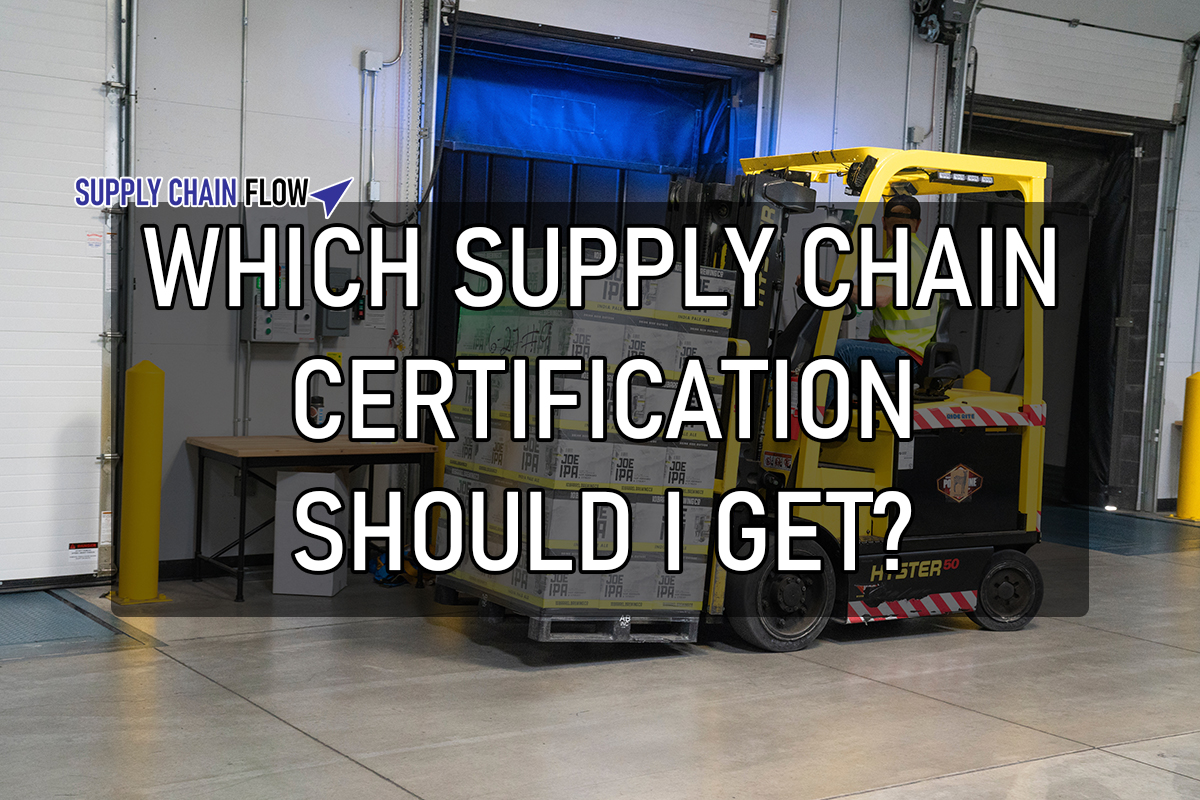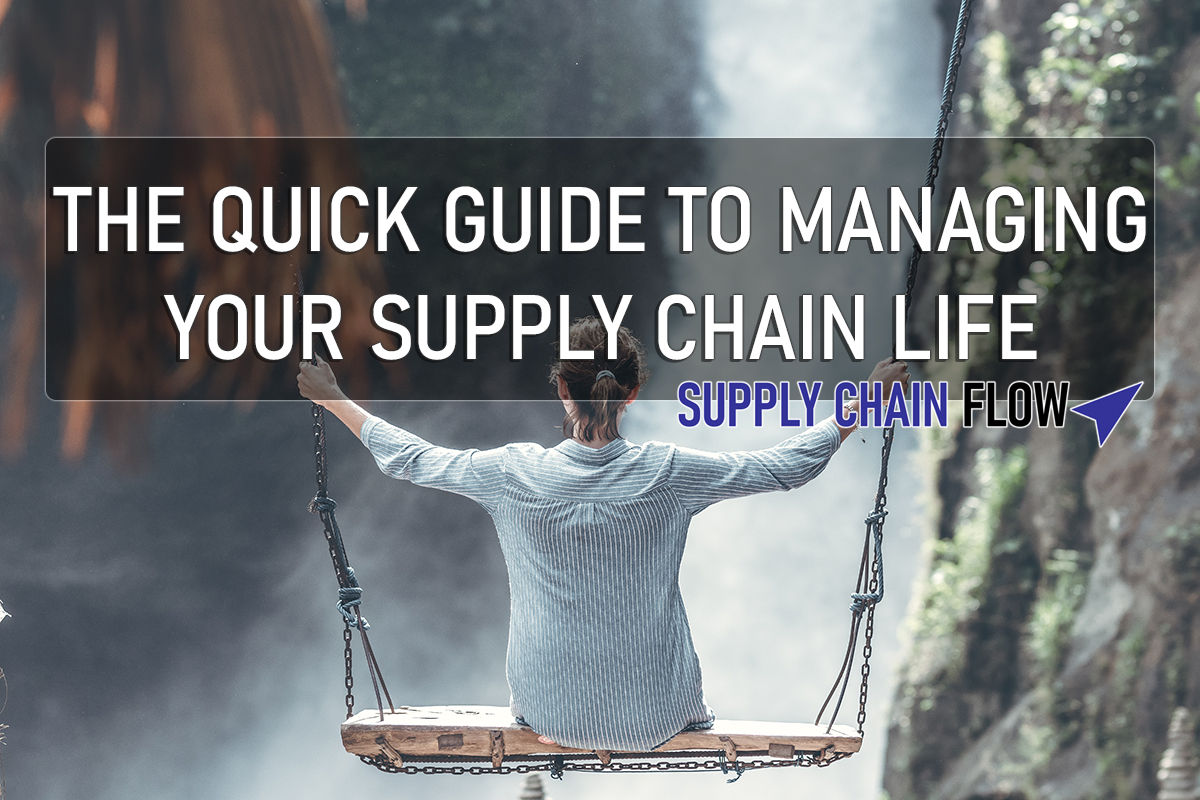
How to Interview for Supply Chain Jobs: The Ultimate Guide with 9 Steps to Success
Interviewing is vital to getting a great Supply Chain job. However, Interviewing can be stressful and nerve-wracking. In this article, we're going to go over how to Interview for Supply Chain jobs and give you to the tools to set yourself up for a successful Supply Chain interview.
Interviewing in general tends to give everyone the butterflies, not just you. The best advice I can give is to relax - If you're in the interview, you've already been approved to move forward.
The interview is a time to get to know the new company, ask questions, see if the position is a good fit for you, and show them you're eager to join.

Table of Contents
- Prepare Ahead Of Time
- Tailor Your Interview to the Specific Job
- Set Yourself Up for Success
- Adjust Your Mindset Going into the Interview
- Interview Practice Questions
- What accomplishment are you most proud of?
- Describe a time when you were in a tough situation, and tell us how you resolved the issue.
- What is the biggest challenge, or one of the biggest challenges you see in Supply Chain today?
- What skill are you always working on?
- What was the most recent/best/worst feedback you've received?
- What is something you're not good at, but working on being better?
- Describe a situation where you had to make a fast decision, and how you came to that decision.
- Manager Positions and Leadership Questions
- Asking The Interviewer Questions
- Red Flags in an Interview
- Case Study Questions
- In Conclusion
Prepare Ahead Of Time
Print off the names and job titles of any and all interviewers. If you're on a remote interview, post this behind your camera so it's handy.
Try using their names during your answers - this is a cool psychological trick that can improve trust between you.
Tailor Your Interview to the Specific Job
Print off the job description, or highlighted subjects from the posting that you want to speak to. You want to cater your conversation towards what the company is looking for.
It's helpful to ask the interviewer or your recruiter directly what attributes they're looking for as well, and you can tailor your interview towards those high level skills.
Set Yourself Up for Success
Get a good night sleep the night before, drink plenty of water. If possible, get at least 10 minutes of direct sunlight first thing the morning of, to really wake up your mind and jump-start your "awake" circadian rhythm.
Adjust Your Mindset Going into the Interview
Confidence is king. You've got a ton of life experience that has gotten you this far, and if the company is interviewing you, they've already seen your resume and qualifications - meaning they're interested!
So it's up to you to show the company you're who you said you were on your resume. The best interviewees are the ones who are happy to be there, and eager to start a new role.

Interview Practice Questions
Below I've listed a few of my favorite and least favorite interview questions. Read carefully, and write down and rehearse possible answers prior to starting your interviews.
Questions below aren't indicative of what will be asked - but can provide a jumping off point for you to talk about your strengths, learning opportunities, and things you're most proud of.
What accomplishment are you most proud of?
This is an opportunity to describe some good things you've done.
Try thinking about three different options or so, depending on the position that you're applying for - a time when you collaborated on a big project? Maybe a time you improved a process and someone appreciated it.
This one is pretty open ended, and is the time for you to brag a bit about yourself.
Describe a time when you were in a tough situation, and tell us how you resolved the issue.
This is a chance to describe how you problem solve. Did you listen to all sides of an issue? What kind of compromise did you end up with?
What is the biggest challenge, or one of the biggest challenges you see in Supply Chain today?
This is a question to see if you're aware of major supply chain issues going on today. There are a ton of new issues in Supply Chain after COVID, so speak to something you have direct experience in, or something you are passionate about.
Bottlenecks, Bullwhip effects, and the imbalance of supply and demand are just to name a few. Check out JOC.com for recent news.
What skill are you always working on?
This question can go a couple of ways. You can choose a skill you already excel at, or something you're still working on - but either way it should be a skill you're passionate about and potentially something you explore even during off-work hours.
Some examples are - being a better communicator, learning more technology solutions (Excel, Access, Azure databases, etc), continuous learning, etc - and be prepared to give examples of how you are working on these skills.
Are you taking a night class? Studying for a certification? Taking Udemy courses on Excel? Be eager to talk about a skill you're passionate about.
What was the most recent/best/worst feedback you've received?
Admitting you have flaws is a great way to show honesty and integrity as a person - but don't insult yourself. You can acknowledge a flaw and that you are working on making it better or overcoming it, but don't resort to putting yourself down.
An example would be Bad: "I received feedback that I wasn't approachable, so I tried harder to talk to my coworkers. I really don't think I'm unapproachable, but maybe I am"
Good: "I received feedback that I wasn't approachable, so I took time to reach out individually to my coworkers. Now we have an informal remote happy hour once a week, and I've learned a lot about how to put myself out there. I'm thankful to get that negative feedback, because it helped me become a better individual".
What is something you're not good at, but working on being better?
Similar to above, acknowledging your shortcomings is good. But make sure it comes from a place of learning to be better, not a place of talking down to yourself. You can go with technical skills, such as this:
"I wanted to learn more about advanced Excel skills, as I was working a lot in Excel and I felt I was doing a ton of manual work. I took a few Udemy courses, and now I'm more confident in my Excel skills, although I'm still learning."
Or, soft skills, like so:
"I wanted to learn how to communicate better with my carriers, so I asked one of our project manager for some tips. They were able to help me structure my meetings better, and now I'm able to keep my carriers on tasks in our meetings. I'm always trying to communicate better, so I make sure to review each meeting at the end too."
Describe a situation where you had to make a fast decision, and how you came to that decision.
You’re going to be put into a position where you may have to make a quick and responsive decision. Come with examples where you made logical, smart, and quick decisions. This could be anything.... group projects in school, how you manage/balance your studying, how you make financial decisions/college budget. Show that you are organized and net results from your organization skills.
Manager Positions and Leadership Questions
If you're interviewing for a role that has subordinates, below questions would most likely apply. They're a bit more focused than other types of interview questions.
A good leader is open, honest, and understands that they don't know everything. It's a learning process. Run through the below questions and practice some potential answers.
How do you work with leaders from other parts of the organization?
Collaboration is key - describe how well you work with others, how you listen and give feedback, brainstorm ideas to resolve issues with peers. Being open and honest.
How do you keep yourself and your employees motivated?
For yourself, you can state your personal reasons for being in Supply Chain - "I'm intrinsically motivated", or "I'm motivated within Supply Chain due to a new challenge every day". As far as your employees, this can be a difficult thing - so explain how you would make connections with your employees and support them.
"I make sure to have one on ones regularly, and monitor how my employees are feeling. I step in at difficult times when I know they need some support. Being a cohesive team has motivated my employees to make sure the job gets done at the end of the day."
Diving into how everyone communicates differently could be a good direction as well.
How would you handle poor performance in an associate?
Compliment in public, chastise in private. You want to show that you are respectful of your employees and understand when issues arise, taking good action and providing support for employees, in order to improve an employee's performance.
Listening is a key aspect of understanding reasons behind poor performance. Taking action by adjusting an employee's workload, allowing them to work on easier or different tasks that they are more apt towards.
How would you handle a workplace conflict?
You want to show that you seek quick, effective action whenever a conflict arises. Listen to both sides and understand their reasons. Choosing an action that is fair and follows your company's compliance standards is vital. Follow up is important as well - did your disciplinary action lead to a resolution long term?
Asking The Interviewer Questions
Remember, an interview is a two way street. The job posting sounded nice enough to apply, but the other side of the interview is to determine if you want to really work for this company. Here's a few questions you can ask to determine what's going on under the hood at the company.
Do you answer emails and calls outside of work? How often?
Listen to their answer carefully. If they avoid a straight answer, that can indicate this as "all the time". You should not be expected to answer calls and emails outside of work hours unless your pay reflects that.
How many meetings do you typically have in a day?
Depending on a few different industries and positions, more meetings can be okay. However, if you're in a technical position - IT solutions, engineering, or anything where you need time to develop and focus deeply - having more than 4 meetings a day can be a red flag. Ask if you'll be attending the same number of meetings in your role than the person interviewing you, and what those meetings entail.
Red Flags in an Interview
Although some companies are great, some are not. Here are a couple common red flags to watch out for.
Red Flag One: "We're a Family"
This is a huge indicator of inappropriate work-life balance - your company will expect you to do favors for them due to "loyalty", but be the first to fire you when it's best for the company.
Red Flag Two: "We do anything it takes to get the job done"
Are you ready to jump through hoops, and work nights and weekends when the customer asks you to?
Red Flag Three: "You'll be wearing many hats"
This can indicate that you'll be doing the work of multiple positions. I'd steer clear of this unless your pay is the same as three people.
Case Study Questions
In some areas of Supply Chain, you may be asked to work through a case study. It's more prevalent in areas such as Procurement, or if you are interviewing as a recent graduate. This isn't a very popular form of interview - personally, I feel we all perform very differently in an interview setting versus our actual job position. Case studies should be short and informal - Supply Chain is not a field like Computer Science and should not require several hours of your time just to do homework for an interview, unless the company is particularly outstanding (Think Logistics for Google or Apple).
A good strategy for case studies is to work out the problem, one step at a time, explaining your process out loud. The interviewer wants to see your system and logic when approaching a problem. They also will be able to help if you make an incorrect assumption, and help guide if you get stuck.
Remember - in your real job, you'll have coworkers to bounce ideas off of, collaborate with, and ask for help; so I wouldn't feel stressed about attempting to solve a problem completely on your own.
In Conclusion
Remember, when interviewing - it's not an interrogation, it's a two way conversation between a few people to find out if you and the company are a good fit. The salary isn't always everything - if you can't stand the job or the company culture, you won't want to work there long anyways. Find confidence, a good attitude, and be open.
Interviewing is a stressful process for anyone, and can leave you feeling nervous and potentially pessimistic. Hopefully with the above, you can use these questions as a solid foundation for your interviewing process, and feel a bit more confident.



